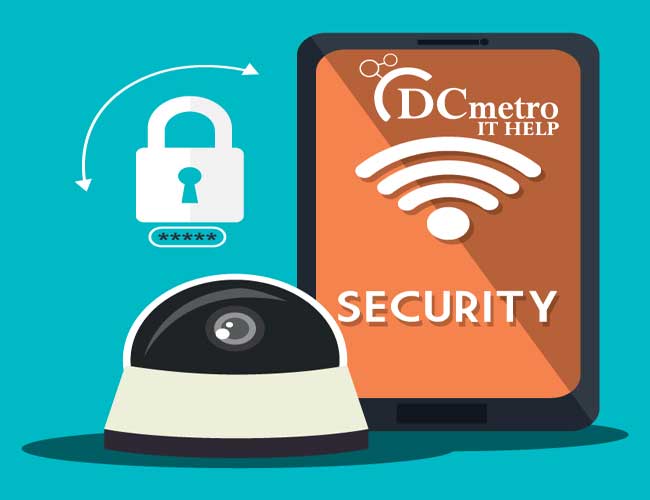In an increasingly connected world, Wi-Fi has become an indispensable part of our lives. From homes to businesses, we rely on wireless networks to access the internet, stream media, and communicate with others. However, with this convenience comes the risk of security threats. Hackers and cybercriminals are constantly seeking vulnerabilities in Wi-Fi networks to exploit for their nefarious purposes. It is crucial for individuals and organizations to prioritize Wi-Fi security to protect their sensitive data and ensure a safe online experience. In this article, we will discuss essential steps to enhance your Wi-Fi security and safeguard your digital fortress.
Contact us 202-810-7755 today to learn more about WiFi service. Please contact us for setup WiFi for your business or if you have any questions or concerns.
DC Metro IT Help
- Change Default Credentials:
The first and most crucial step in securing your Wi-Fi network is to change the default credentials of your router. Manufacturers often use generic usernames and passwords, making it easier for attackers to gain unauthorized access. Create a strong and unique password that includes a combination of letters, numbers, and special characters. Additionally, change the default username to further fortify your network’s defenses.
- Enable Encryption:
Encryption plays a pivotal role in safeguarding the data transmitted over your Wi-Fi network. Ensure that your wireless router is using the most advanced encryption protocol available, such as Wi-Fi Protected Access 2 (WPA2) or preferably the latest WPA3. Encryption scrambles your data, making it unreadable to unauthorized users attempting to intercept your network traffic.
- Secure Your Network Name (SSID):
The Service Set Identifier (SSID) is the name of your Wi-Fi network that appears in the list of available networks. Modifying the default SSID helps prevent potential attackers from easily identifying the make and model of your router, making it harder for them to exploit known vulnerabilities. Choose a unique and nondescript name that does not disclose any personal or identifiable information.
- Employ Strong Passwords:
Apart from securing your router’s administrative interface, it is crucial to set strong Wi-Fi network passwords. A weak or easily guessable passphrase can jeopardize your entire network’s security. Use a combination of uppercase and lowercase letters, numbers, and special characters to create a robust and complex password. Regularly update your password to maintain its integrity.
- Implement Network Segmentation:
Network segmentation involves dividing your Wi-Fi network into multiple subnetworks or VLANs (Virtual Local Area Networks). This approach helps contain potential security breaches by limiting access to critical resources and isolating devices from one another. By segmenting your network, you reduce the likelihood of an attacker compromising your entire infrastructure.
- Disable Remote Management:
Remote management allows network administrators to access and manage the router’s settings from a remote location. However, leaving this feature enabled poses a significant security risk. Disable remote management unless absolutely necessary, and ensure that it is protected by a strong password and encrypted communication.
- Regular Firmware Updates:
Router manufacturers release firmware updates to patch security vulnerabilities and introduce new features. Stay vigilant and regularly check for updates. Enable automatic firmware updates if available, or visit the manufacturer’s website periodically to download and install the latest firmware. Keeping your router’s firmware up to date helps protect against emerging threats.
- Enable MAC Address Filtering:
Media Access Control (MAC) address filtering provides an additional layer of security by allowing or denying access to your Wi-Fi network based on specific MAC addresses. While it is not foolproof, it can help prevent unauthorized devices from connecting to your network. Enable this feature and specify the MAC addresses of devices that are allowed to connect.
With the increasing prevalence of cyber threats, prioritizing Wi-Fi security has never been more important. By following these essential steps, you can significantly enhance the security of your Wi-Fi network, safeguard your sensitive information, and protect yourself and your organization from potential attacks. Remember, maintaining a secure Wi-Fi network requires ongoing vigilance and staying up to date with the latest security practices. By taking proactive measures, you can enjoy the benefits of a fast and reliable wireless connection while minimizing the risks associated with Wi-Fi vulnerabilities.



Leave a Reply